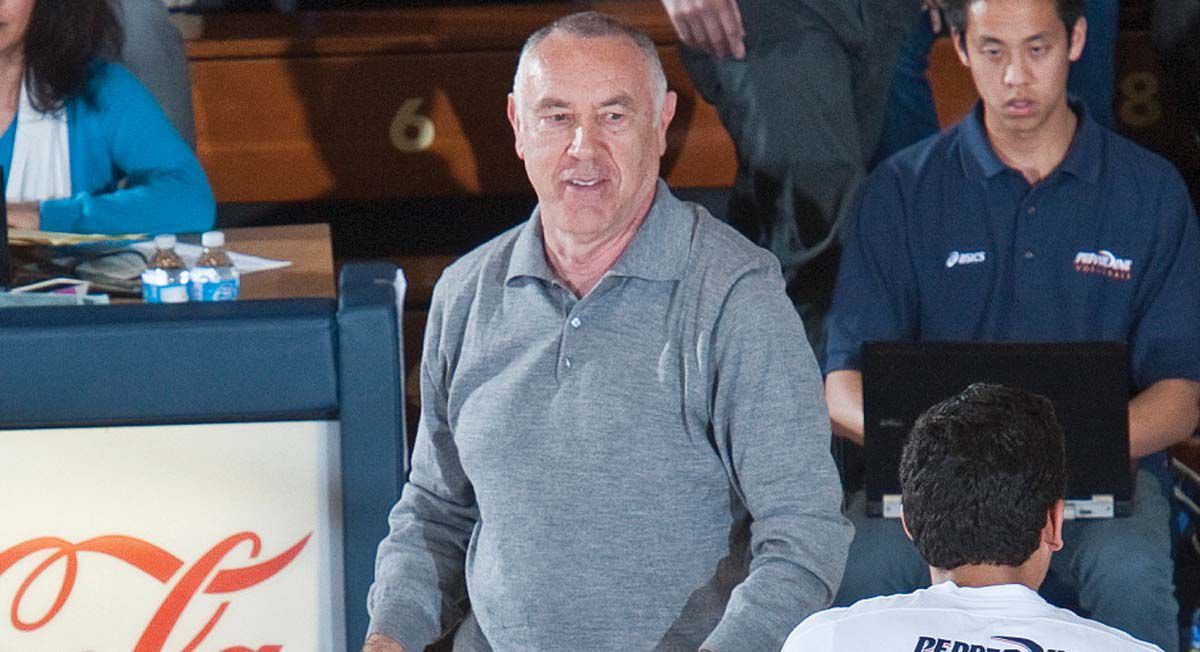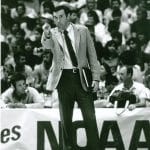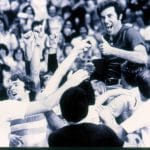It’s been more than three years since Marv Dunphy retired from his post as the head coach of the Pepperdine Waves men’s volleyball team. To the hall of fame coach, the time since the end of his 34th season leading the Waves has sprinted by.
“I thought as we went through life things got slower, but it flies by,” he said. “It seems like yesterday that I stopped [coaching]. I turned that page and certainly enjoyed every minute.”
Along with riding an ATV around his Malibu property, Dunphy, a septuagenarian, has spent the national lockdown with family. The coach, himself a onetime volleyball player, has also kept an eye on the sporting landscape that has been steadily reopening for several weeks now. Dunphy is looking forward to youth sports hopefully making a strong comeback.
“These young kids compete, they have fun and they find a way,” he said. “I think it is really important. You have to learn how to win, how to lose, how to compete and do what is right.”
Dunphy led the Waves to four NCAA championships and 523 wins in his four stints as Pepperdine’s head coach. He first stepped on the Waves’ sideline in 1977 and decided to retire around the time the 2017 season ended. Dunphy, officially now known as Pepperdine’s head coach emeritus, briefly returned to the team as an assistant coach in the 2018 season to aid head coach David Hunt after an assistant coach left the program. Known for his steadfast teaching techniques and technical approach to volleyball, Dunphy is a member of the AVCA Hall of Fame, International Volleyball Hall of Fame, Southern California Indoor Volleyball Hall of Fame and Pepperdine Athletics Hall of Fame.
The spread of COVID-19shut down the globe and ground the sports world to a standstill for months beginning in March. Dunphy advised athletes whose sports are starting up now or are still paused to do what they can to keep their skills sharp.
“Stay the course,” he said. “If someone has to do some sort of running or lifting, obviously it has to be modified now.”
The coach wouldn’t advise an athlete to introduce drastic changes to a training program that has proven successful. Dunphy, the coach of the gold medal-winning 1988 Olympics USA men’s volleyball team, noted how one player he coached in the summer games suffered an injury that was caused by the athlete changing his routine three weeks before the games were scheduled to start.
“Athletes are happiest when they are improving,” Dunphy said, adding that improvements generally happen in small increments. “I would encourage them to chart a course with that in mind.”
The past Pepperdine coach said with so much uncertainty going on with the coronavirus’ impact on sports, coaches should stay in touch with their players.
“I would encourage leaders to communicate,” Dunphy said. “Just that alone would help lower anxiety. We are in this together.”
Dunphy, an assistant coach or consultant for men’s and women’s national teams in the Olympics and international events since winning his ‘88 gold, said athletes and coaches who were set to participate in this summer’s Olympics before it was postponed until July 2021 due to the world’s health epidemic generally live their lives four years at a time due to the sporting event’s quadrennial schedule. He said those sporting individuals now must consider a few new factors as they prepare for the games next summer.
“Some coaches might think, ‘Are some of these other teams going to benefit? Maybe they are going to get better? Maybe their country is less attacked by the virus?’” Dunphy said.
Athletes who have stepped on the competitive playing field again have had to adjust to playing without fans in the stands. Dunphy imagines it must be awkward.
“You have to adjust and embrace the situation,” he said.
Dunphy said coronavirus’ spread has proven to be a test for everyone.
“It’s a bit of a jigsaw puzzle we are in now,” he said. “We have to do everything we can and chart a course.”




